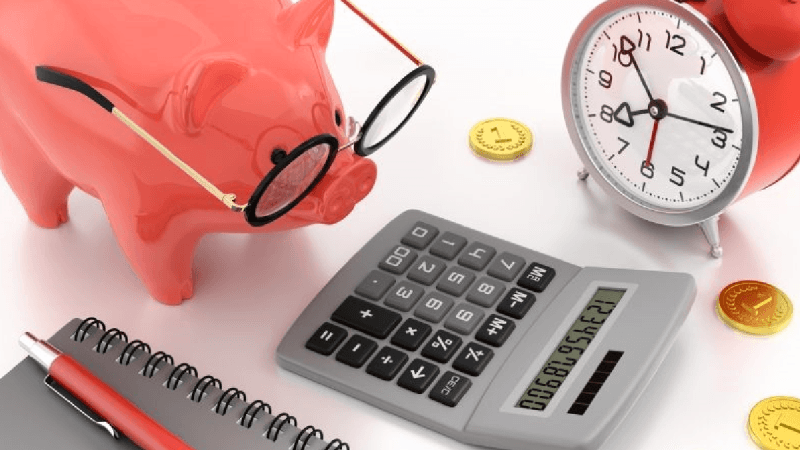Would you like to have more money in your pocket? Saving is one of the best ways to achieve it. But many times, we don't know where to start or what strategies to follow to reach our financial goals. In this article, we present the 10 best tips to save money and keep your personal finances in order.
1. Set a monthly savings goal
To start saving money, it's important to have a specific goal in mind. Decide how much you want to save each month and write that number down in a visible place, such as on a whiteboard or on your cell phone. Then, think about how you can reduce your spending to reach that goal.
For example, if your goal is to save $100 a month, you might opt to bring your lunch to work instead of buying it outside every day. You can also try buying generic products instead of name brands and look for deals and discounts. By setting a monthly savings goal, you will be motivated to take active and conscious steps to better manage your money and reach your long-term financial goals.
2. Make a budget
Budgeting is one of the best ways to track your spending and make sure you're not spending more than you can afford. Start by writing down your monthly income and expenses, and then identify any areas where you can reduce your spending. Once you have a solid budget, be sure to stick to it and make adjustments as needed.
3. Look for discounts and promotions
One of the best tips for saving money is to constantly look for discounts and promotions on the products and services you need. You can find deals in physical stores and online, through coupons, discount cards, loyalty programs and more. Be sure to be aware of sales seasons and special days such as Black Friday or Cyber Monday. Also, don't hesitate to negotiate with sellers to get a better price.
4. Reduce food costs
One of the easiest ways to save money is to reduce food costs. Here are some tips:
- Make a shopping list before going to the supermarket and stick to it.
- Buy generic products instead of name brands.
- Take advantage of offers and discounts.
- Buy foods in season, as they are usually cheaper.
- Cook at home instead of eating out.
- Consider buying in bulk, especially for non-perishable products.
Reducing the cost of food will not only help you save money, but can also be beneficial to your health by cooking healthier, more nutritious meals at home.
5. Buy clothes during the sales season.
Sale seasons are an excellent opportunity to buy clothes at lower prices. They are usually in January and July, although it may vary depending on your geographic location. Take advantage of these dates to buy basic and timeless garments that you can use throughout the year.
You can also follow the social networks of your favorite stores to be aware of when the sales start and be among the first to get the best prices. It is important that before you buy you check the garment well, since many times stores put on sale imperfect or defective products. Also make sure that you really need the garment and you are not just buying on impulse.
6. Use public transportation or carpooling
If you live in a city where public transportation is accessible and reliable, use it instead of driving your own car. This will save you money on gas, parking and vehicle maintenance. If you can't avoid driving, consider carpooling with friends or colleagues to split the costs.
7. Save on household expenses
One of the main areas where you can save money is on household expenses. Here are some tips on how to do it:
- Switch to LED bulbs to save on electricity consumption.
- Use efficient appliances, such as washing machines and refrigerators with energy efficiency labels.
- Reduce water consumption by turning off faucets while brushing your teeth or shaving, and fixing any leaks.
- Switch to organic and seasonal produce to save on food.
- Buy used or bargain items whenever possible, such as furniture, appliances and other household items.
With these simple tips, you can significantly reduce your household expenses and save money for other important needs.
8. Use online banking and save on banking fees
Online banking is an excellent tool for managing your personal finances and saving money on bank fees. With online banking, you can access your accounts and perform banking operations from anywhere and at any time of the day, without having to wait in long lines at bank branches.
In addition, many financial institutions offer special promotions and discounts for those customers who use online banking regularly. So, don't hesitate any longer and start taking advantage of this tool.
9. Control your expenses with a mobile application
In the digital era in which we live, there are many mobile applications that can help you control your expenses and save money. These applications allow you to record your income and expenses easily and quickly, categorize your expenses and establish monthly budgets.
Some of the most popular apps to control your expenses are:
Download one of these applications and start monitoring your expenses in order to identify areas where you can cut costs and save money.
10. Learn how to say no to unnecessary shopping temptations
One of the main causes of unnecessary spending is the lack of self-control when faced with temptations to buy, especially when they are on sale or promotion. To save money, it is important to learn to say no to these impulses and evaluate if you really need that product or if it is just a whim.
An effective technique to control these impulses is to make a shopping list in advance and stick to it, avoiding visiting stores or malls without a specific goal in mind. It is also important to remember that impulse purchases often lead to regret and remorse later on. In addition, before making any purchase, it is advisable to compare prices in different places and look for cheaper options or alternatives that can fulfill the same function.











